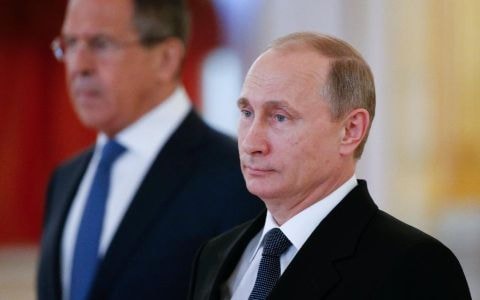EU countries angry over Russia's entry ban
Russia's entry ban on 89 EU citizens has angered EU member states, demanding a satisfactory explanation from Moscow.
Russia's move also further aggravates its already strained relationship with the EU over the Ukraine crisis.
 |
| Russian President Putin (Photo AFP) |
The list banned from entering Russia includes 89 politicians and military and intelligence leaders from EU countries including Germany, Britain, Belgium, Poland, France, Latvia, Lithuania, Estonia, Denmark, Finland, Czech Republic, Romania, Bulgaria and Spain.
According to many sources, this list includes some high-ranking figures such as former British Deputy Prime Minister Nick Clegg, former British Defense Minister Malcolm Rifkind, former Belgian Prime Minister Guy Verhofstadt, and even some current officials such as Polish Deputy Minister of Justice Robert Kupiecki.
Former Bulgarian Ambassador to Russia Ilian Vassilev was not surprised that his name was on this list.
“I expected this to happen, but I was surprised because I am quite small compared to the other names on the list of former or current Deputy Prime Ministers and Ministers. The most worrying thing is that this list shows a new level of confrontation between the two sides,” Mr. Vassilev said.
Ms. Anna Maria Corraza Bildt, a member of the European Parliament (EP) and wife of former Swedish Prime Minister Carl Bildt, is also on the blacklist.
Swedish Foreign Minister Margot Wallstrom on May 30 asked Russia to explain the entry ban on these people, including eight Swedish citizens.
“Russia has the right to put forward such a list, but there needs to be a reasonable explanation as to why it is banning these people. As far as we understand, this is a response to a similar ban from the EU. But the EU ban is completely transparent and, above all, it explains why each name is on the list. Russia’s actions do not contribute to increasing trust in them,” Ms Wallstrom said.
Since Russia annexed Crimea in March last year, the EU has imposed a series of economic sanctions, visa bans and asset freezes on many Russian and Ukrainian citizens and organizations. The reason is that the West accused Russia of supplying weapons and sending troops to support opposition forces in eastern Ukraine, but Moscow has always denied this accusation.
A spokesman for the EU diplomatic agency in Brussels, Belgium, said Russia's response was not new because Moscow had in fact blocked a number of EU politicians from entering the country in recent months, but had so far refused to publish the list.
Defending the reason for keeping the list secret, Russian Deputy Foreign Minister Alexei Meshkov once said that Moscow wanted to protect the personal information of those on the list of people banned from entering the country, while affirming that "people on the list were not banned by chance" and the list "does not include leaders or high-ranking officials".
Dutch Prime Minister Mark Rutte said the Dutch government still opposes Russia's move and believes that the sanctions list issued by Russia "is not based on international law, is not transparent and is not recognized" in a court of law.
Meanwhile, German Foreign Minister Frank-Walter Steinmeier criticized Russia for this action, saying that Moscow should not announce the entry ban list at the present time when all sides are trying to reduce conflicts in Central Europe./.
According to VOV.VN
